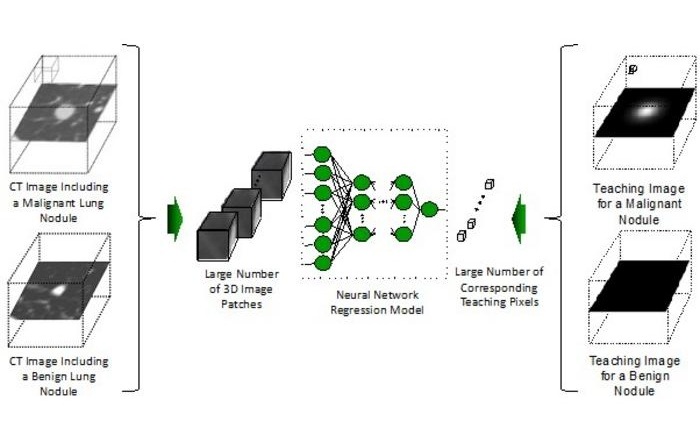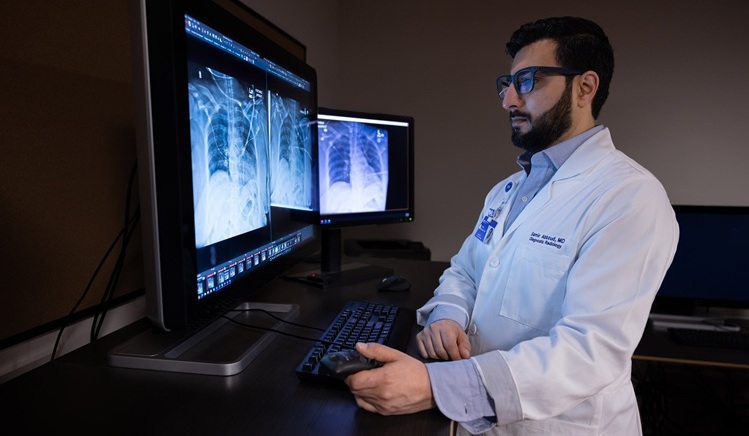POC AI Tool Helps Novice Users Accurately Estimate Gestational Age from Blind Ultrasound Sweeps
|
By MedImaging International staff writers Posted on 02 Aug 2024 |
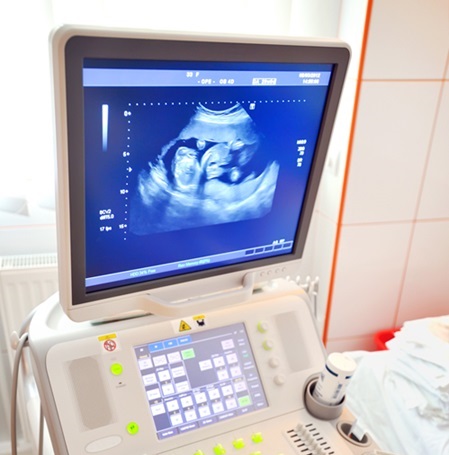
Obstetrical sonography plays a vital role in modern pregnancy care, notably for accurately measuring fetal structures to estimate gestational age (GA). This measurement is essential for guiding antenatal care decisions, such as the timing for gestational diabetes screening and vaccine administration to maximize benefits for both mother and baby. GA is also crucial for determining the need for interventions like corticosteroids or neuroprotective magnesium sulfate in cases of expected preterm delivery and for deciding the appropriateness of clinician-initiated delivery. Despite its importance, ultrasonography is often inaccessible in many low- and middle-income countries (LMICs). However, recent developments in ultrasonography technology and artificial intelligence (AI)-enabled medical image analysis are promising to extend the reach of this vital diagnostic tool. Researchers have now introduced a deep learning AI model integrated into the software of an affordable, battery-operated device that can estimate GA from blind ultrasonography sweeps.
A study led by researchers from the UNC School of Medicine (Chapel Hill, NC, USA) assessed the accuracy of GA estimation using this AI-enhanced ultrasonography tool by novice operators without prior sonography training. The study involved 400 pregnant participants whose due dates were confirmed by first-trimester ultrasonography. During randomly scheduled follow-up visits across their pregnancies, these novice clinicians were able to estimate gestational age as reliably as experienced sonographers using traditional ultrasonography equipment.
Specifically, from 14 to 27 weeks’ gestation, these novice clinicians matched the accuracy of credentialed sonographers performing standard biometry on advanced machines, using the low-cost, point-of-care AI tool. Published in JAMA Network, these findings have significant implications for obstetrical care in resource-limited settings, aligning with the World Health Organization's goal to make ultrasonography-based gestational age estimation accessible to all pregnant individuals.
“Our study demonstrates that an AI-enabled, portable ultrasound device can estimate gestational age as accurately as an expert sonographer using an expensive, high-specification machine. This high degree of accuracy was obtained even though the users of the device had no formal training in sonography,” said corresponding author Jeffrey S. A. Stringer, MD. “The most important takeaway is the potential democratization of a critical prenatal diagnostic tool. By enabling accurate gestational age estimation without the need for expensive equipment or specialized training, this technology could significantly expand access to quality prenatal care in resource-limited settings worldwide.”
Related Links:
UNC School of Medicine
Latest Ultrasound News
- Wireless Chronic Pain Management Device to Reduce Need for Painkillers and Surgery
- New Medical Ultrasound Imaging Technique Enables ICU Bedside Monitoring
- New Incision-Free Technique Halts Growth of Debilitating Brain Lesions
- AI-Powered Lung Ultrasound Outperforms Human Experts in Tuberculosis Diagnosis
- AI Identifies Heart Valve Disease from Common Imaging Test
- Novel Imaging Method Enables Early Diagnosis and Treatment Monitoring of Type 2 Diabetes
- Ultrasound-Based Microscopy Technique to Help Diagnose Small Vessel Diseases
- Smart Ultrasound-Activated Immune Cells Destroy Cancer Cells for Extended Periods
- Tiny Magnetic Robot Takes 3D Scans from Deep Within Body
- High Resolution Ultrasound Speeds Up Prostate Cancer Diagnosis
- World's First Wireless, Handheld, Whole-Body Ultrasound with Single PZT Transducer Makes Imaging More Accessible
- Artificial Intelligence Detects Undiagnosed Liver Disease from Echocardiograms
- Ultrasound Imaging Non-Invasively Tracks Tumor Response to Radiation and Immunotherapy
- AI Improves Detection of Congenital Heart Defects on Routine Prenatal Ultrasounds
- AI Diagnoses Lung Diseases from Ultrasound Videos with 96.57% Accuracy
- New Contrast Agent for Ultrasound Imaging Ensures Affordable and Safer Medical Diagnostics
Channels
Radiography
view channel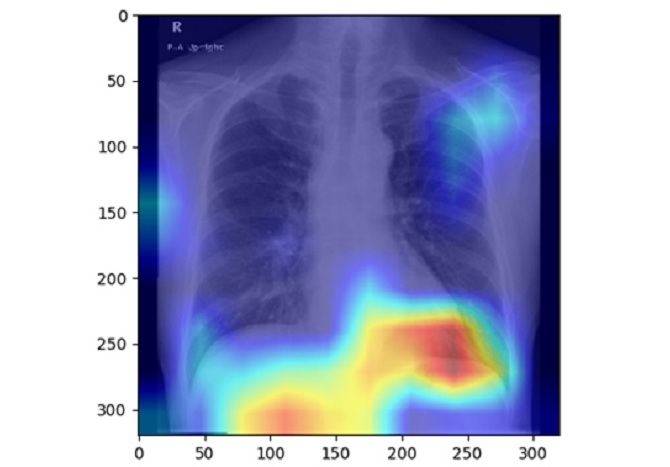
AI Detects Fatty Liver Disease from Chest X-Rays
Fatty liver disease, which results from excess fat accumulation in the liver, is believed to impact approximately one in four individuals globally. If not addressed in time, it can progress to severe conditions... Read more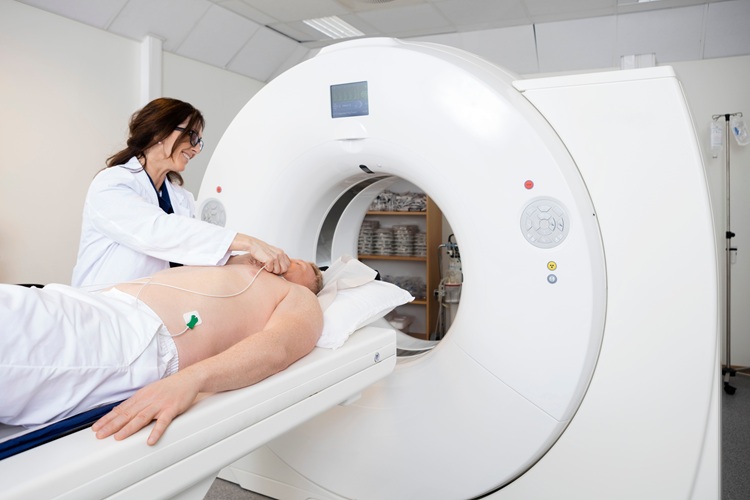
AI Detects Hidden Heart Disease in Existing CT Chest Scans
Coronary artery calcium (CAC) is a major indicator of cardiovascular risk, but its assessment typically requires a specialized “gated” CT scan that synchronizes with the heartbeat. In contrast, most chest... Read moreMRI
view channel
New MRI Technique Reveals Hidden Heart Issues
Traditional exercise stress tests conducted within an MRI machine require patients to lie flat, a position that artificially improves heart function by increasing stroke volume due to gravity-driven blood... Read more
Shorter MRI Exam Effectively Detects Cancer in Dense Breasts
Women with extremely dense breasts face a higher risk of missed breast cancer diagnoses, as dense glandular and fibrous tissue can obscure tumors on mammograms. While breast MRI is recommended for supplemental... Read moreNuclear Medicine
view channel
Novel Bacteria-Specific PET Imaging Approach Detects Hard-To-Diagnose Lung Infections
Mycobacteroides abscessus is a rapidly growing mycobacteria that primarily affects immunocompromised patients and those with underlying lung diseases, such as cystic fibrosis or chronic obstructive pulmonary... Read more
New Imaging Approach Could Reduce Need for Biopsies to Monitor Prostate Cancer
Prostate cancer is the second leading cause of cancer-related death among men in the United States. However, the majority of older men diagnosed with prostate cancer have slow-growing, low-risk forms of... Read moreGeneral/Advanced Imaging
view channel
CT Colonography Beats Stool DNA Testing for Colon Cancer Screening
As colorectal cancer remains the second leading cause of cancer-related deaths worldwide, early detection through screening is vital to reduce advanced-stage treatments and associated costs.... Read more
First-Of-Its-Kind Wearable Device Offers Revolutionary Alternative to CT Scans
Currently, patients with conditions such as heart failure, pneumonia, or respiratory distress often require multiple imaging procedures that are intermittent, disruptive, and involve high levels of radiation.... Read more
AI-Based CT Scan Analysis Predicts Early-Stage Kidney Damage Due to Cancer Treatments
Radioligand therapy, a form of targeted nuclear medicine, has recently gained attention for its potential in treating specific types of tumors. However, one of the potential side effects of this therapy... Read moreImaging IT
view channel
New Google Cloud Medical Imaging Suite Makes Imaging Healthcare Data More Accessible
Medical imaging is a critical tool used to diagnose patients, and there are billions of medical images scanned globally each year. Imaging data accounts for about 90% of all healthcare data1 and, until... Read more
Global AI in Medical Diagnostics Market to Be Driven by Demand for Image Recognition in Radiology
The global artificial intelligence (AI) in medical diagnostics market is expanding with early disease detection being one of its key applications and image recognition becoming a compelling consumer proposition... Read moreIndustry News
view channel
GE HealthCare and NVIDIA Collaboration to Reimagine Diagnostic Imaging
GE HealthCare (Chicago, IL, USA) has entered into a collaboration with NVIDIA (Santa Clara, CA, USA), expanding the existing relationship between the two companies to focus on pioneering innovation in... Read more
Patient-Specific 3D-Printed Phantoms Transform CT Imaging
New research has highlighted how anatomically precise, patient-specific 3D-printed phantoms are proving to be scalable, cost-effective, and efficient tools in the development of new CT scan algorithms... Read more
Siemens and Sectra Collaborate on Enhancing Radiology Workflows
Siemens Healthineers (Forchheim, Germany) and Sectra (Linköping, Sweden) have entered into a collaboration aimed at enhancing radiologists' diagnostic capabilities and, in turn, improving patient care... Read more












